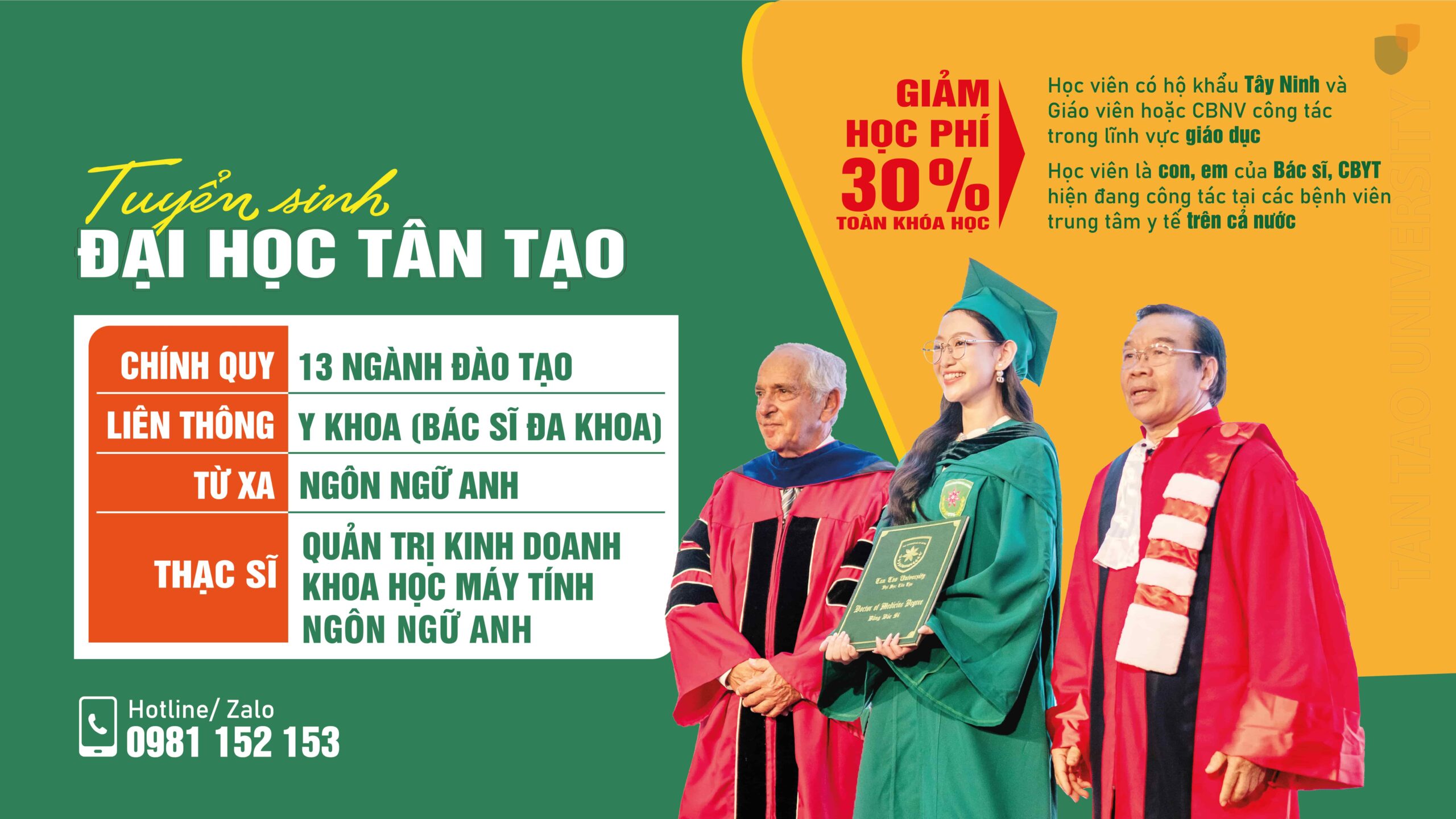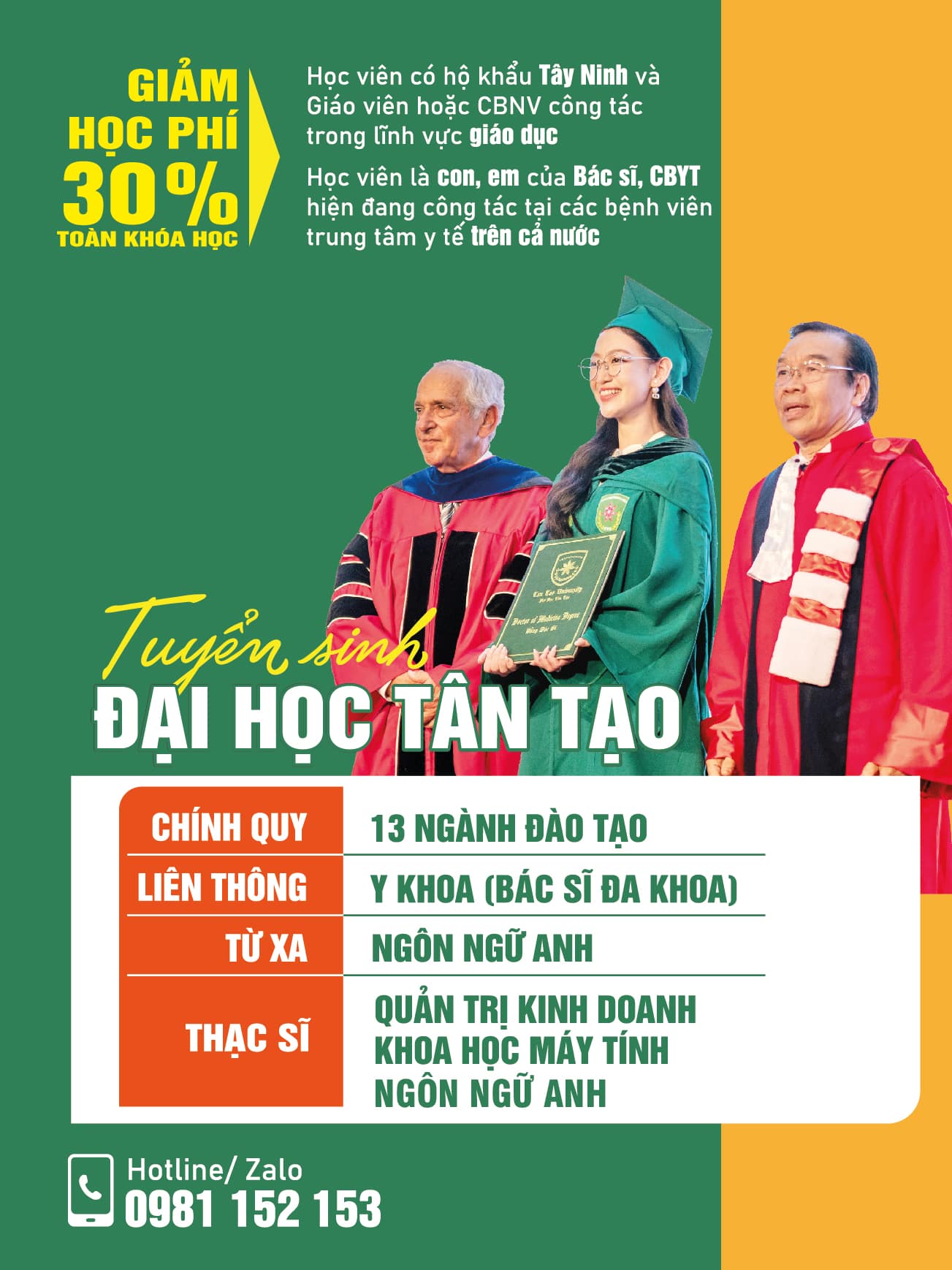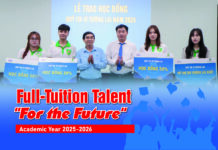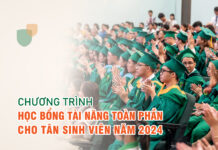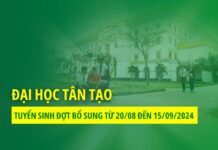Tan Tao University Commencement Remarks of Dr. Eugene H. Levy
Andrew Hays Buchanan Professor of Astrophysics & Provost Emeritus, Rice University
Member of the Founding Board and Academic Affairs Committee of Tan Tao University
A university graduation is an auspicious occasion. Every instance of graduation marks an important passage. For the students graduating this morning, today marks a singular passage toward independent life. For parents, a day like this one also marks an important passage. As a parent myself, I have experienced – three times – the simultaneously bitter and sweet feelings that accompany this passage. I am sure that many of the parents in this room are feeling that wonderfully strange mixture of sadness and pride that comes with watching yesterday’s children become tomorrow’s adults: impressively independent and competent … as unlikely – even as impossible – as that might have seemed only a few short years ago. It can be hard for parents to watch their children becoming independent and taking flight. For those parents among you who may be struggling now with that transition, I offer one possible solace: think how much worse the alternative would be!
This Commencement is auspicious in another way. It is the very first Commencement for the very first graduating class of a new university. Tan Tao University opened just five years ago, after earlier years of planning and work to establish Vietnam’s first private, not-for-profit University, modeled generally after American universities, and modeled specifically in some respects after Rice University in Houston, Texas. (I want to emphasize that the name of Rice University has nothing to do with grains of rice. That university is named in honor of a man named William Marsh Rice who donated his fortune to establish Rice University more than a century ago.)
I am a professor of physics and astronomy at Rice University. I previously served as the provost of Rice University for a decade. I made a decision to pursue a life in science – specifically a life in physics – when I was in junior high school. In the eighth grade. I did not decide which area of physics to pursue until I was in graduate school. I chose theoretical astrophysics … because I could think of no more exciting, or sexier, way to spend my professional life than in trying to figure out how the world works.
Along the way, I somehow was drawn into other distracting activities and jobs, including serving on many advisory and governing board for science, and serving in several leadership positions in a couple of universities. It was in that context that I met and got to know Madam Yen and became involved as a member of the Board of this University. I feel deeply honored to have been asked to address this first graduating class of TTU.
The Tan Tao University Board of Trustees is a group of individuals who have agreed, as a public service, to act as the governors of Tan Tao University. The Board of Trustees is dedicated to working with the founder of Tan Tao University, Mme. Hoang-Yen Thi Dang to help guide the University on its path of development to be, eventually, among the leading universities in Vietnam and the world.
I am pleased to be able to say that I am not the only Tan Tao University Board member to be here this morning. Another Board member, Mr. Michael Michalak, is also here. Mr. Michalak is a former United States Ambassador, who previously represented the United States in Vietnam. Mr. Michalak is accompanied to this ceremony by Mrs. Michalak. And I am accompanied to this ceremony by my favorite person, Dr. Erzsébet Merényi, also a professor at Rice University, and an expert in computer intelligence, the science of making computers analyze information in ways that resemble how human brains work.
I want to take a few minutes this morning to say a few words about two people who are special for Tan Tao University. The first special person I want to say something about is Madam Yen. Tan Tao University exists solely because of her vision. Unfortunately Mme. Yen is unable to be in Vietnam right now to attend this commencement ceremony. I bring you greetings and best wishes from her. She wished she could be here.
Mme. Yen started her working career as a government employee in Vietnam. Her job with the government was to help private companies from outside of Vietnam understand the advantages of locating manufacturing facilities here in Vietnam, and to help the companies to establish such factories here. While doing that work, Mme. Yen saw the opportunities for private developers to develop industrial parks Vietnam. She changed her career and became a major industrial real estate developer. She eventually become very wealthy. And she then decided to devote her effort and her fortune to establish a great university in Vietnam. Mme. Yen’s vision is animated by an abundant public spirit, to serve the best interests of the nation and the people of Vietnam. Her high-minded vision and spirit of public service have inspired the members of the Board of Trustees to help in this great endeavor. When I asked Mme. Yen to tell me what originally inspired her to want to establish a university, she told me that her father was a big influence in her life. She told me that her father had always spoken of the importance of continuing education throughout life, and the he had pursued his own education even as an adult after he had children. She told me that she wanted to help bring the highest quality of educational opportunities to the citizens of Vietnam.
The other special person that I want to say a few words about is Dr. Malcolm Gillis. Dr. Gillis was the first Chairman of the Tan Tao University Board of Trustees. As recently as two months ago, Dr. Gillis had planned to be here today to help celebrate this first TTU Commencement. Tragically, twelve days ago, Dr. Gillis died after a long battle with cancer. He was a good friend of mine. We had worked together for a number of years. I miss him immensely. Dr. Gillis was a distinguished economist. He did a great deal of work as an economist and economic adviser in Southeast Asia, and was a longtime friend of Vietnam. He served as a member and chairman of the Board of the Vietnam Education Foundation, and he devoted significant efforts to help in establishing new universities in both Germany and North Korea in addition to his work with TTU. He also served for eleven years as president of Rice University, from 1993 to 2004. His death is a great loss to many people and institutions.
One of the challenges of being responsible to speak at an event such as this is to decide what to say. I want to tellyou two stories. At the beginning, the stories may sound disconnected. But, as I hope you will soon see, these stories are not as disconnected as they may seem at first. I have told these stories before to groups of students very much like this group in situations very similar to our gathering here today. It has always seemed to strike a resonant, and even useful, chord. Indeed, so much so, that I have even been asked by students to hear these stories again. Let me tell you that that is a real joy. As a person who occasionally gives speeches, being asked by former listeners to hear one over again is like striking gold:
1. Many years ago, at the beginning of my career, I shared an office with a guy who was a very serious technical mountain climber. As someone, myself, who never understood why people climb dangerous mountains, I probed him to try to discover his motivation for climbing. (This guy was a serious enough climber to have come to the edge of death during a hazardous climb in the Andes Mountains in South America. He was lucky to get out alive. In fact, he was much more lucky than another friend of mine who, just a few years later, was killed climbing a mountain in the Indian Kashmir Himalayas.)
I eventually understood the motivation and attraction of mountain climbing after I learned about the concept of “exposure”. Exposure – to a mountain climber, at least – is good. For those who do not know what exposure is, let me explain (in the crude way that I understand it). Basically, the less that is underneath you – the less support you have – the more exposed you are, and the better that is supposed to be. Many mountain climbers seek exposure! Others just put up with it.
-
As I stand here, with the entire half-space beneath me filled by the floor, there is no exposure. This is boring to a mountain climber.
-
If I were to be standing, instead, at the very edge of a precipice, the top of a high and steep cliff, that still would not be significant exposure. The mere fact that I am afraid of openly exposed heights is not impressive to a mountain climber.
-
However, if I were to cling, by my fingertips, to the side of a sheer, vertical wall: that would be exposure that begins to be exciting, even to a mountain climber . . . . But it would not be the “best” possible exposure because half of the space beneath me would still be filled with stuff.
-
The best possible exposure would be if I were to cling, by my fingertips, to the underside of a horizontal surface, like the ceiling – or even better a rock overhang with a kilometer of empty space below me. Now that is real, exciting exposure.
Exposure is valued because it offers the satisfaction of accomplishing something difficult, without the support and security that we all normally need and crave. Most of us are satisfied to live without that kind of exposure. Most of do not seek it, and many of us take pains to avoid it. I certainly do.
2. Now I want to tell you about a book that I read quite a long time ago. It was the biography of Subramanyan Chandrasekhar. It was not an especially good book. My main interest in it derived from the fact that, while I was a graduate student at the University of Chicago, I spent three years of my life working 20 meters down the hall from Chandrasekhar. Chandra was one of the greatest astrophysicists in the history of the world. In 1983, at the age of 73, Chandra won the Nobel Prize. He won it for work that he did 53 years earlier, at the age of 20, while he was on a boat from India to England, where he was going to start graduate school at Cambridge University. The work that Chandra did, when he was 20, was ridiculed by the giants of astronomy in the 1930’s. It took many years before the significance of Chandra’s work was widely appreciated and accepted, and half a century before the Nobel Prize was awarded. (In the intervening years he did much other important work. Chandra was, by any measure, a remarkable human being.) Today, that work stands as one of the landmarks in our understanding of stars and the universe.
One of the things in the book that struck me was a quote at the very end, recorded from a conversation with the book’s author, after Chandra had already been awarded the Nobel Prize. In that conversation, Chandra said:
“Even at this stage of my life, when I send in a … publication, I constantly worry whether it will be accepted [by the editors].”
Think about it. This was a man who had already won the Nobel Prize in Physics. About whom it was said that he never wrote the first book on any subject, but that he only wrote the last book on any subject. He had served for 20 years as the Editor in Chief of the Astrophysical Journal, the leading astrophysics publication in the world. Yet he says, nearing the age of 80:
“Even at this stage of my life, when I send in a … publication, I constantly worry whether it will be accepted [by the editors].”
In this quote, Chandrasekhar expresses his feeling of exposure. He expresses the anxiety that accompanies producing something new or innovative: the anxiety of being in front of the pack, the anxiety of taking a leadership position. What Chandra acknowledges here is that to accomplish something significant or important, one must be willing to be exposed. Without a willingness to accept exposure, the potential for truly significant accomplishment is squashed.
Our world society faces continuing large and real challenges. Some among you will emerge as leaders, when it comes time for your generation to assume responsibility for society. Perhaps leaders in business . . . in education . . . in politics . . . perhaps in some other realm.
To make the highest and best use of your education—to be a leader, whether it be intellectual leadership in scientific work as it was for Chandrasekhar, or leadership in other endeavors – you will need to find within yourself the willingness to accept exposure, to take appropriate risks – not for private thrills, but for good, constructive, and well-thought-out purposes.
I urge you to think about this, because leadership from informed and well-educated individuals such as yourselves will be among the most valuable resources in the society that you are about to inherit. And real leadership requires – along with creativity, imagination, energy, and initiative – a willingness to accept some amount of constructive exposure.
In closing, I want to remind you of a few things: I want to remind you that learning should and must continue to be a part of your lives…and that you cannot – none of you – regard today as the end of your education. As important as college is, there is ever more to learn. That was always true. And it is all the more true today, as the pace of change is accelerating ever faster.
We live in a world increasingly enriched, and increasingly challenged, by the industries of knowledge. Science, and science-based technology, have shaped major aspects of modern life. I expect that such advances will continue. The benefits that you will see in the next decades will far surpass even those scientific and technological miracles which already are a part of everyday life. But what science and technology bring into our lives is ethically neutral and without inherent moral values. These days we pay a lot of attention to technological and economic progress. We must pay an equal amount of attention to social progress. The total progress of our society requires that we strive to ensure that the benefits, the wealth and the well-being of our society are distributed equitably, and used to advance a wise and informed sense of the broad public interest.
You who are graduating have benefited from a university committed to advancing your knowledge, understanding, and skills. As you go about your future lives, I urge that you give continuing thought to the role that you can play in advancing knowledge, understanding, and skill in those around you. As you have been educated, I urge that you play the role of educators.
Please also remember that a vast reservoir of talent and potential contribution lies untapped in those who for one reason or another have not had your opportunity to pursue advanced education, or in those who, for one reason or another, have never been given to understand that such options were open to them. I urge that you do what you can to advance the opportunities for those who have not enjoyed opportunity thus far.
Finally, I would like to take this opportunity, while I am standing here, to admonish you, in a more personal way, to seek a balanced life. The formal part of your university education has focused mostly on intellect, on rigorous analysis, and on creative cognitive skills. I urge you to seek and develop your emotional intelligence along with your intellect. Dedicate yourself to a life balanced among intellect, humanity, hard work, compassion and emotion, as well as human and humane relationships…do these things, and you are likely to be successful indeed! In all of this, please understand that you bear the responsibility for your life.
I want to close these remarks with the words of the Spanish philosopher and writer José Ortega y Gasset:
We are each here to write, produce, and act out our own drama.
We are each of us unique.
We can choose every day what we are going to do.
We can make our life a work of art.
You can make your life a work of art … and you are the only one who can do it.
I want to congratulate all of today’s graduates, and wish each of you a productive, happy, successful and rewarding life.




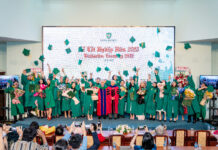




![[Giải đáp] Tương lai của ngành ngôn ngữ Trung tương lai của ngành ngôn ngữ trung](https://ttu.edu.vn/wp-content/uploads/2025/11/tuong-lai-cua-nganh-ngon-ngu-trung-218x150.png)

